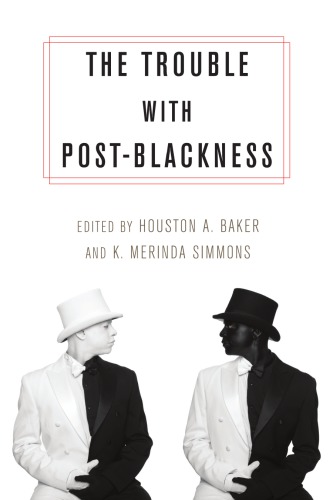
The Trouble with Post-Blackness
- اطلاعات
- نقد و بررسی
- دیدگاه کاربران
نقد و بررسی

December 8, 2014
The contributors to this thoughtful, provocative, and only occasionally heavy-going collection of essays argue that the idea that the modern-day U.S. is post-racial, specifically in black-white relations, does a disservice to both historical and present-day racial realities. Barack Obama’s presidency sets the general context for these pieces, and the title takes its inspiration from social critic Touré’s 2011 treatise Who’s Afraid of Post-Blackness?, which proposed that what it means for an American to be black is no longer as fixed as it once was. Touré also appears as a touchstone throughout the pieces, which touch on aspects of black culture and life that the authors consider imperiled by the post-blackness concept. The opening selection from Margo Natalie Crawford, for instance, looks at the Black Arts movement, while Greg Thomas considers African-American literature, and Bayo Holsey examines an “imagined Africa as an ancestral homeland.” Despite such disparate concerns, the authors are linked by the conviction that post-blackness doesn’t just try to extract its subjects from the past; it also ignores or actively denies the ways in which the present is still dangerous for the majority of “blackened subjects.” While the academic tone and intellectual rigor are unlikely to inspire any significant public debate, this book persuasively argues that what Touré calls “being like Barack” really just maintains normative whiteness as an untroubled, unanalyzed construct.

December 15, 2014
What does it mean to be black in America now? A wide variety of scholars and deep thinkers respond in these essays on race, society, art and more. Though the first line of this collection reads, "I should make one thing clear from the outset: this volume is not about Toure," most of these essays either deconstruct the author's argument in Who's Afraid of Post-Blackness? (2011) or offer either an academic or personal rebuttal to that particular work. Curated by Baker (English/Vanderbilt Univ.; Betrayal: How Black Intellectuals Have Abandoned the Ideals of the Civil Rights Era, 2008, etc.) and Simmons (Religious Studies/Univ. of Alabama; Changing the Subject: Writing Women Across the African Diaspora, 2014, etc.), the book presents a wide range of voices and opinions from people who have spent much of their careers studying America's struggles with race and identity. The essays are all contemplative, but their scholastic nature could prove off-putting to nonacademic readers. It may depend on how readers feel about passages like this one, from "African Diasporic Blackness Out of Line" by Greg Thomas: "Beyond a propagation of self-abolition, 'post-blackness' must be more than 'non-Black.' It must actually be something in lieu of Black; and 'African Americanism' provides this supposed escape hatch in a five-centuries-long context of Western European racism and imperialism, at least in the mentality of the propagators of abolition or self-abolition as a new mode of neocolonial assimilationism." The majority of the essays are in this vein, examining Toure's argument from the frame of reference of the Black Arts Movement, American literature, globalization, social media and more. Later, things take an interesting turn with a handful of more personal essays, culminating in a pointed criticism of President Barack Obama by novelist Ishmael Reed and capped off with a poem, "Thirteen Ways of Looking at Post-Blackness (after Wallace Stevens)," by Emily Raboteau. A thoughtful, if not gentle, scholarly refutation of a controversial claim of a post-racial society.
COPYRIGHT(2014) Kirkus Reviews, ALL RIGHTS RESERVED.

November 1, 2014
An essay collection by scholars across the country who consider (and reject) the "post-racial" era that others argue began with the Obama administration.
Copyright 2014 Library Journal, LLC Used with permission.




دیدگاه کاربران